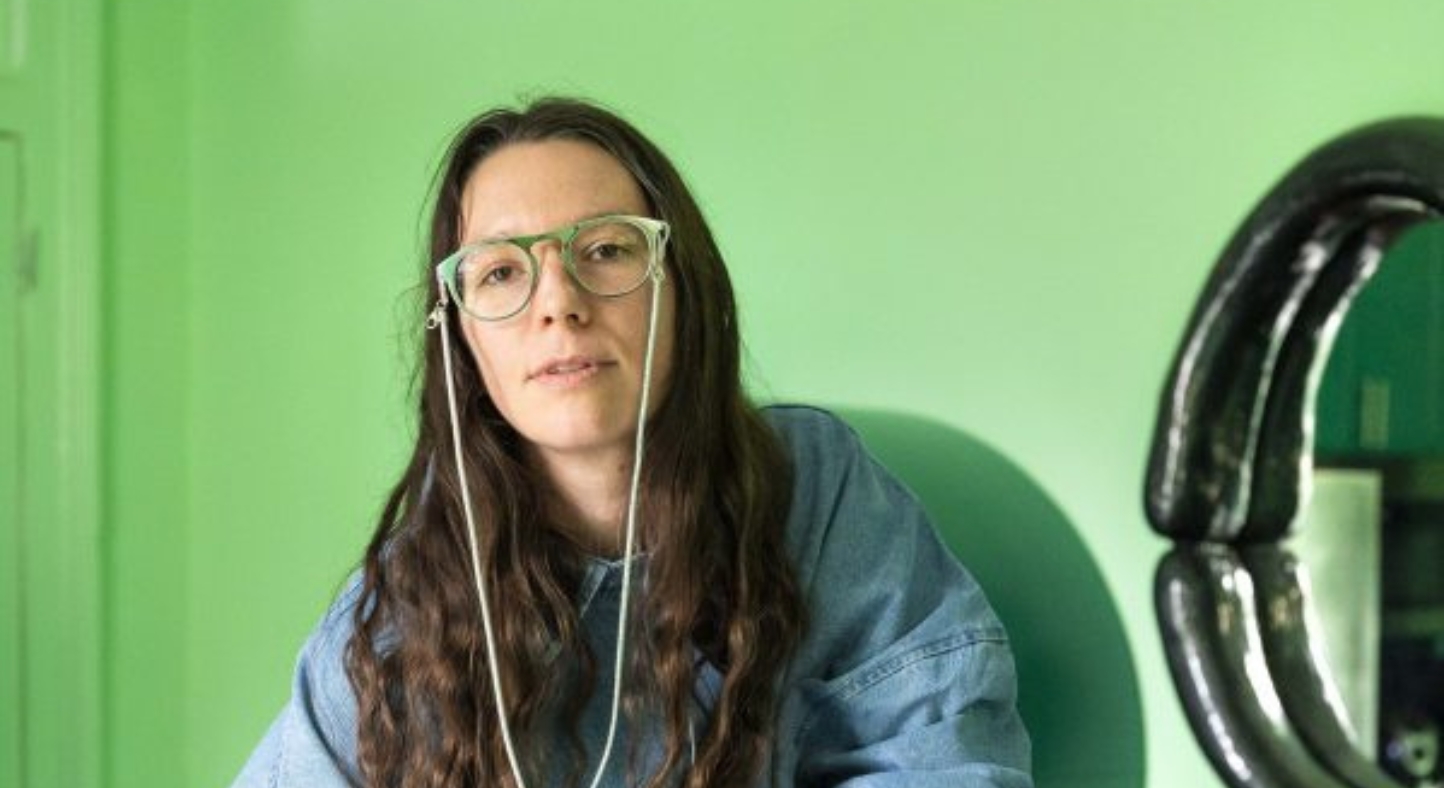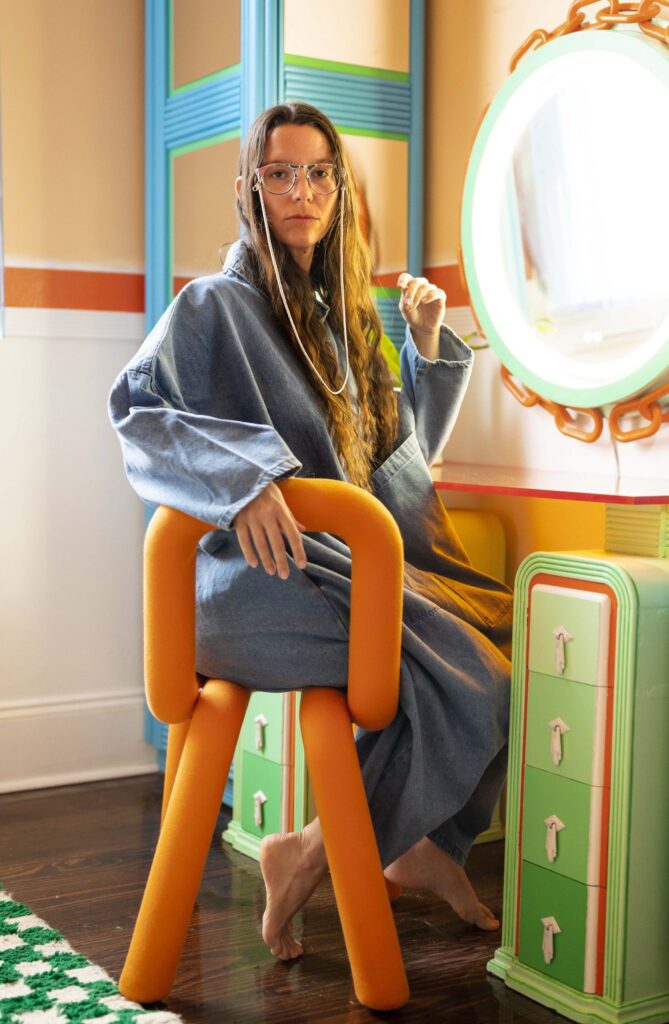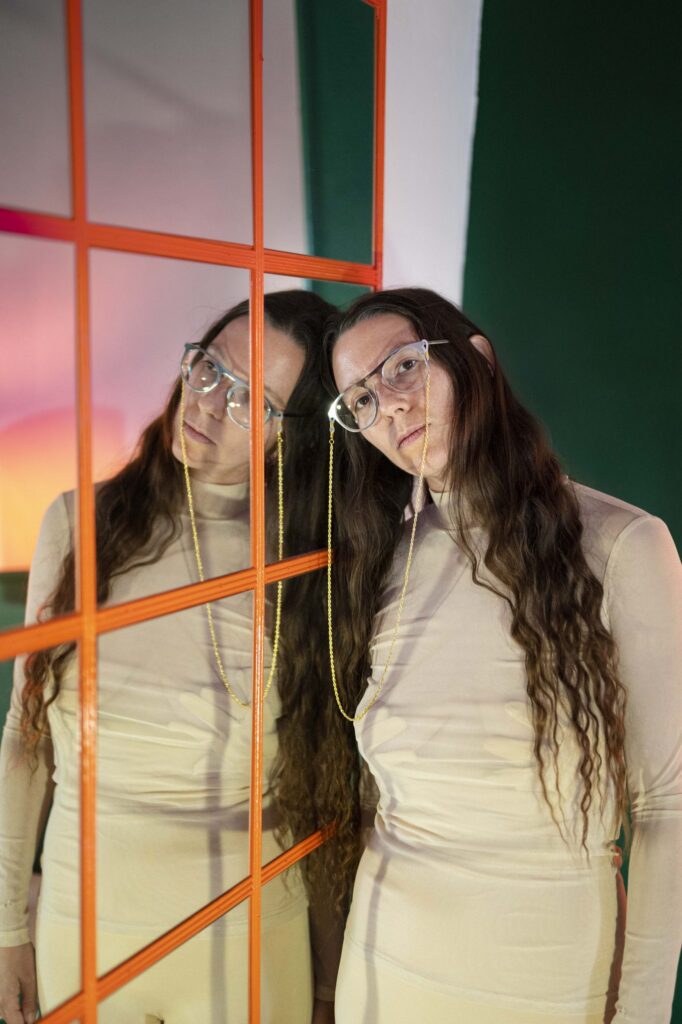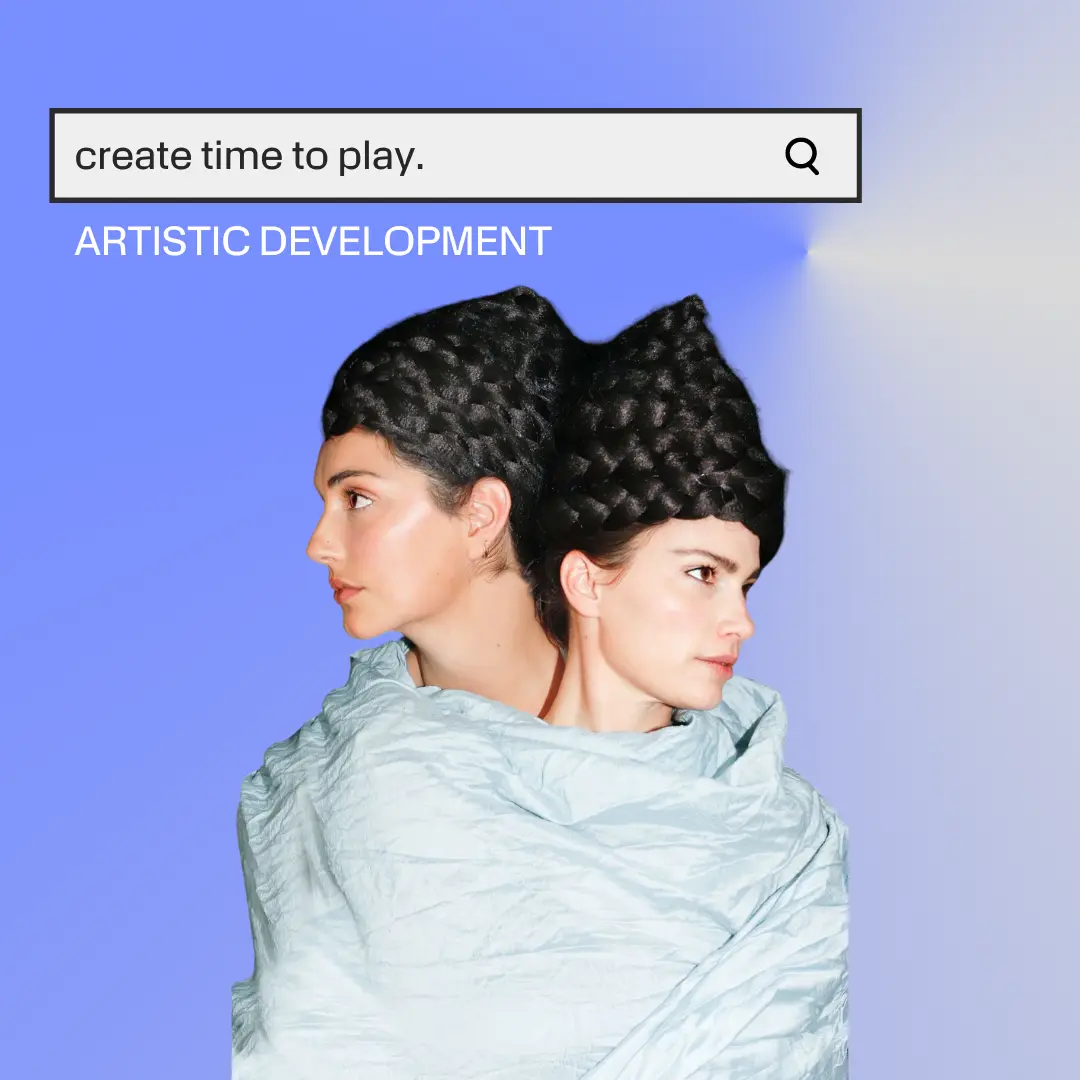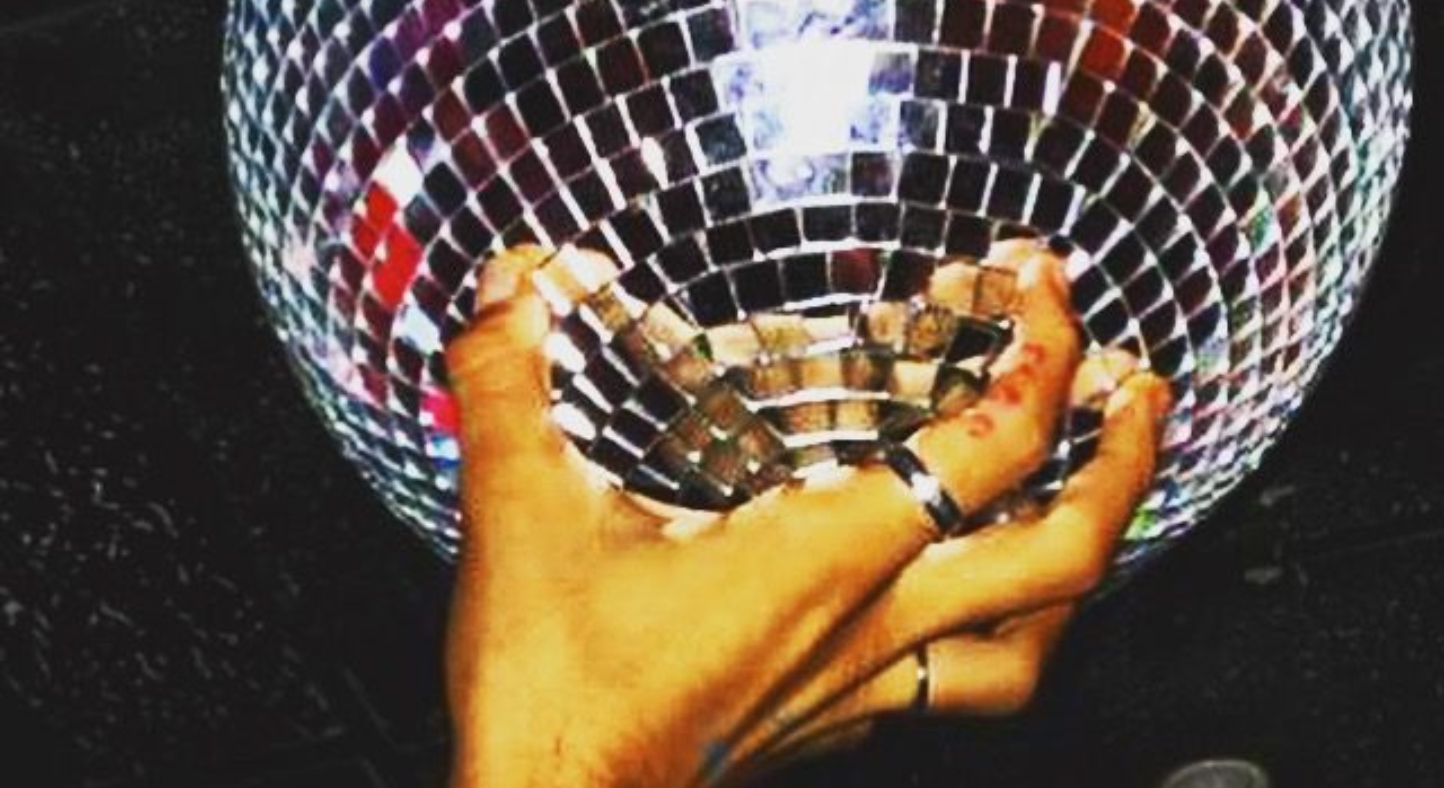Boyfriend is embracing authenticity, in all its forms
The NOLA-based artist talks censorship and fluctuating identity.
Ten years after crafting her onstage persona—a move driven by a desire to precipitate conversations about art and identity, as well as create social commentary around topics like empowerment, sex and feminism—Boyfriend is prepared for the release of her first full-length album, “Sugar & Spice.”
A performance artist, singer, rapper, songwriter and producer from Nashville and living in New Orleans, she has spent the past decade seemingly racking up one bucket list experience after another: writing a song for Big Freedia for the Space Jam reboot, headlining a party for Marc Jacobs in Tokyo, releasing an EP featuring Cindy Wilson of the B-52s, and touring with Pussy Riot are just a handful of her impressive and wide-ranging accomplishments.
When I spoke with Boyfriend on the eve of her formal debut, I was most struck by her excitement at the prospect of reintroduction—not a new character or as a new artist, but as herself.
How did you begin rapping as a way to express your musical identity?
I wasn’t very confident as a singer when I first started doing music. I come from a family of musicians so there’s all these people who have incredible voices. I can sing; I was in choir and musicals in high school and stuff, but people aren’t coming to see me because of my voice. I started out writing these poems and it was clear very quickly that it should be rapped. So that steered me into rapping. Then I realized I’m actually really good at rap. I’m very fast. But that’s only 50% of what my songs are, especially now. I am singing as much or more than I am rapping. But something else about rap is that there are so many more words in a minute, and I could really pack in a lot of imagery. It allows you to go so many places because it is so verbose.
Do you feel like you’re only a rapper?
Absolutely not. [The label] annoys me a little bit, but I’ve been trapped with it because my handle was @rapcabaret for so long. “Rap cabaret” was a way for me to describe my live show and have people understand what it was. Plus, to get verified across all the various platforms, you have to have the same handle and real estate and [it] was something no one else had. But then once you get it, you can’t change it easily. I know this sounds terribly dull, but this is the type of stuff that can be so defining of how you’re seen.
What is in the works for you right now, musically speaking?
I am releasing my debut album on September 9th. I’ve done a lot of EPs and singles, and then I did a remix project of my EPs that is technically album length, so on Spotify it shows up as album—but it’s not really.
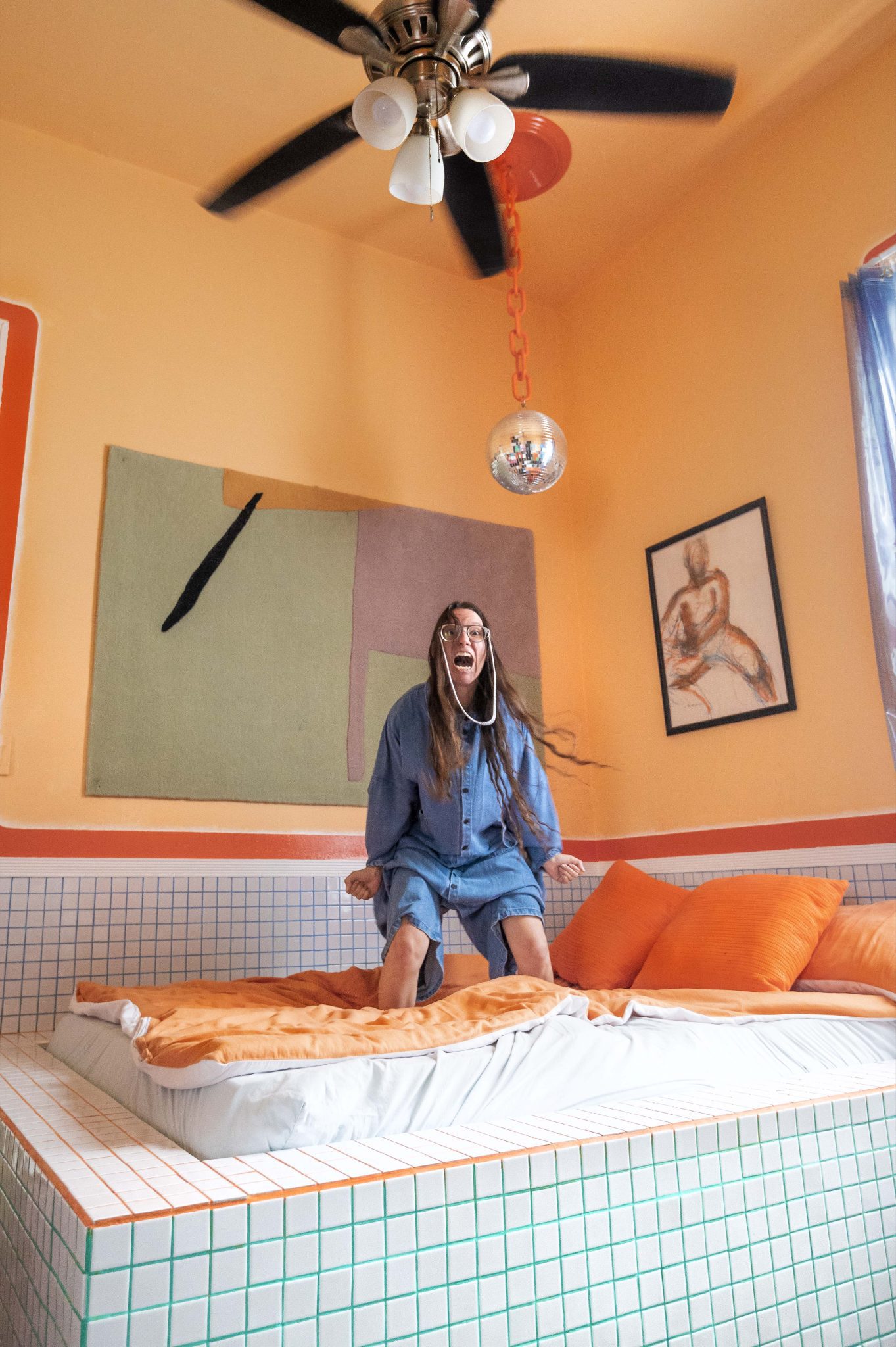
What are you most excited about in releasing a full-length album?
Mostly for the songs just to be out. I’ve been living with them for so long. The newest song on there will have been finished for seven months and that’s the freshest one. The oldest was one I wrote in 2015. It’s sort of like having a bunch of packages sitting by the door and you’re finally able to put them in the mailbox.
Can you tell me more about the upcoming album? What does it sound like? What are you saying on it?
The album is sort of a portrait of a woman, hence “Sugar & Spice.” There’s syrupy pop songs about lost love and there’s sacrilegious dance music. I wanted to showcase my sonic range but place it within a container. By just releasing singles and EPs so far, I’ve had a super wide range of sounds, but I don’t think it has served me. Even though actual humans have complex and varied taste, the algorithms and industry forces still want to make you into one thing so that they know how to market you. I’ve been stubbornly avoiding that, but probably to my detriment because I do think there are decisions I could’ve made that would’ve gotten my work in front of more eyes and ears. This album is a chance to showcase my variety underneath a sonic umbrella so it feels cohesive and true, but not constrictive.
You were once known for only being seen in public with rollers in your hair. What precipitated your recent shift in physical and artistic presentation?
It had been a long time coming. I have always and still love the retro, 1960s, sound stage musical aesthetics that I was drawing from then. But I’m not Doug Funny, I’m not gonna wear the same thing every day and it was starting to feel that way. So, I was already feeling that way and what really did it was that I was going to the premiere of Space Jam. I wrote a song that was in Space Jam—the Big Freedia song “Going Looney”—and I was going to go to the premiere with Big Freedia and I was like, “Am I really going to walk a real red carpet with rollers?” There is something about them that feels more costume than fashion. It felt like I was maybe going to end up pigeon-holing myself further in some way and putting myself into a situation where there was some sort of ceiling. The rollers [are just] on the shelf, not in the dumpster. The platform I have built, albeit a smaller platform than most, is still something that took me a long time to build and has given me some stability and I built it on those rollers.
It’s worth noting that the reason I was doing that was to call attention. My favorite way to critique something is to embody it; I was trying to critique the beautification processes that women undergo. Anytime I would go to something, I had to pack all these rollers and all this makeup. I don’t even own a hair dryer or know how to curl my hair or any of that. I don’t [personally] like this stuff, that’s why I critique it.
I just performed at Outside Lands [with Pussy Riot] and I didn’t wear any makeup—not even toner. I washed my face, put on my glasses, and went on stage. I’ve never done anything or experienced anything like that before and it was scary, but it was also really liberating. It’s nice that I am now getting to embody the alternative reality that I was trying to point to with some of my [previous] work. The necessary caveat is that I do think makeup and costumes and hair is super fun and super empowering. Lipstick can be a burden to someone and a weapon to someone else. I feel differently about these processes from day-to-day, and even hour to hour. I’m not saying don’t shave your legs, don’t get plastic surgery, don’t wear makeup. Do whatever the fuck you want to do. Just be doing it for yourself instead of for society.
Since turning this new leaf, what has the public reception been like?
I think people like it. I’ve had a lot of people ask why I’m not wearing rollers anymore. It’s art. You can answer that on your own. Something else that’s happened is that I’m getting shadow banned. It’s pretty horrible. I had to change the cover art for my album on behalf of censorship. So much stuff has been getting reported, flagged, or the algorithm just decides it’s bad or sexual or whatever.
The original image was a concept I’ve had for over a year, since before the album was even finished. I had seen work by Rebma of 69 where she stretches and contorts nipples into zigzags and loops so that it’s no longer technically even a nipple you’re depicting. The album art I wanted had my “nipples” spelling out the title “Sugar and Spice.” But we’ve been having so much trouble with existing images. My tour poster was unapproved for ads—my butt cheeks are in it but there’s no actual nudity—and single art for “Deceptacon” was rejected by DSPs for sexual content. We fought it and ultimately won, but there is a bonkers level of censorship happening. The inherent sexualization of the female body versus this ever-shifting definition of nudity. And while I hate this puritanical anti-art censorship, I’d also hate for people not to hear or be exposed to my album just because bots and Karens are flagging it. So… new album art it is.
What is the intersection between your musical identity and your personal one? Will the entity known as Boyfriend continue to evolve with you over time?
When I started, I was working with kids in arts education. New Orleans is a pretty small world, so I really wanted a distinction between my personal life and my performing life. That boundary has degraded over time. People became adamant about learning my “real name”—it’s amazing how entitled straight white men are! I would introduce myself as Boyfriend and they would push and push, “What does it say on your birth certificate? What did your mom name you?” This has gotten better over the years as folks are getting more used to identity politics and the idea of respecting someone’s wishes on how they want to be referred.
I think Boyfriend has made me more like her: more brave, more sturdy. And in turn, I’ve let more of my personal life seep in. It used to feel like a very distinctly different human being but Boyfriend the character has faded more and more away and it’s pretty much just me now.
“Sugar & Spice” is out now. You can follow Boyfriend on Instagram for her touring schedule.
Katie Sikora is a journalist and photographer based in New Orleans. You can find more of her work here.

















